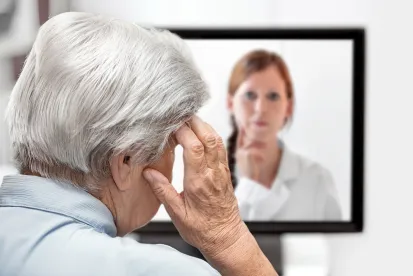In the October 8, 2021 session of our Let’s Talk Compliance series, Foley & Lardner’s T.J. Ferrante and PYA’s Valerie Rock shared their expertise and answered questions regarding telemedicine. One area of focus was the “telemedicine cliff” - unless Congress acts, the telemedicine requirements will return to their prior restrictions after the Public Health Emergency (PHE). With the uncertainty of what the Federal and State requirements will be after the PHE, and the uncertainty as to when the PHE will conclude, closely monitoring guideline changes and developing a transition plan are key. A recording of the event is available here.
Not long after our event, on October 15 the HHS Secretary extended the PHE through January 16, 2022, the sixth renewal since the PHE was first declared in January 2020. The following includes key takeaways and resources to monitor:
-
Many of the flexibilities allowing Medicare reimbursement are only temporary and will sunset once the PHE ends. Congress must make a change legislatively to continue flexibilities for removing geographic restrictions; allowing the location of the patient (including the patient’s home) to be an originating site; and allowing Federally Qualified Health Centers, Rural Health Clinics, and Critical Access Hospitals to furnish telehealth and be fairly reimbursed.
-
Flexibilities from other federal agencies such as the Office of Civil Rights (OCR) relating to HIPAA and technology/security requirements and the Drug Enforcement Agency (DEA) relating to controlled substance prescribing requirements will expire after the PHE ends.
-
At the state level, many states temporarily suspended medical licensing requirements, allowing practitioners licensed in other states to deliver telehealth services across state lines. As these temporary waivers begin to sunset, health care organizations must ensure they are once again prepared to comply with these state-specific rules.
-
Commercial payers will each have their own requirements and will be bound by state requirements through laws, rules, and medical board policies.
-
Identifying the services which will benefit patients most by expanding access to care and reducing barriers to routine monitoring and treatment, , will increase adoption and success of telemedicine programs. Ensure those services are not negatively impacted by limitations of the physical exam.
-
Billing and documentation requirements are currently included in Medicare FAQs, Interim Final Rules; however, keep an eye on enforcement to interpret additional requirements, including Medicaid Guidance See e.g., OIG Report.
Additional Resources:
Commercial Payer and State Policies Tool
Medicare recognition for interstate license compact





 />i
/>i
